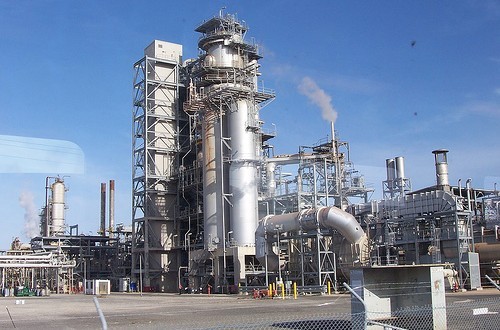Latest
Port Harcourt refinery to resume fuel production by month end– NNPC GMD

OREDOLA ADEOLA
The Nigerian National Petroleum Corporation- NNPC has disclosed that the Port Harcourt Refinery will resume crude oil production by the end of June with the target of contributing about five million litres of Petrol, which is also known as Premium Motor Spirit, PMS to meet domestic demand.
Group Managing Director of the NNPC, Mr. Joseph Dawha disclosed this yesterday during a tour of NNPC retail outlets in Abuja.
The NNPC GMD assured Nigerians that the perennial fuel scarcity would be addressed before the end of the week, as it currently has about 1.1 billion litres of petrol in its storage, which is equivalent to 27 days sufficiency and has deployed 428 truckloads of fuel to Abuja and across the country, in conjunction with the Pipelines and Product Marketing Company (PPMC).
Dawha noted that the corporation is conducting a phased implementation of the rehabilitation of the refineries and that the work at the Port Harcourt refinery is almost complete and will soon start producing at 80 per cent of its installed capacity, contributing about five million litres of PMS per day.
He said, “We took a conscious decision that if the refineries are not in a good state to process crude for maximum gains, then there was no point in sending crude to the refineries. What we do is to try and fix it, so that by the time it starts processing the crude, then we get real value for the crude we have sent to the refineries.
“We are satisfied with the level of work carried out so far on the Port Harcourt refinery so that if we start processing crude now, we will get real value, and they will not be any value distortion that would have been the case if the refineries are not operating optimally.”
He, however, blamed the perennial fuel crisis situation in the country on distribution challenges recorded in some parts of the country, particularly in Lagos. He also noted that the NNPC as the only importer of the product in the country because most of the oil marketers are yet to resume importation of fuel.
Despite the supply and distribution challenges, Dawha assured Nigerians that the scarcity will cease before the end of the week, especially as the measures taken by the Ministry of Petroleum Resources, NNPC and other stakeholders take hold.
Dawha said, “NNPC/PPMC is committed to bringing the fuel queue situation to an end in Abuja and everywhere else by this weekend in collaboration with the marketers and other stakeholders.
“As at Thursday, June 11, 2015, PPMC has a stock of level of 1.1 billion litres, representing 27 days sufficiency. This stock is excluding volumes with firmed delivery laycans (dates) within the next couple of days.
“With this level of stock we have intensified our vessels and trucking operations to ensure that PMS is available at our inland depots and retail outlets nationwide. In the last two days, evidence has begun to emerge as most of our stations are wet and the severity of the queues has started to reduce.”
He disclosed that since it is the supplier of last resort, the NNPC, through its subsidiary, NNPC Retail Limited has intensified its products lifting across the country, adding that it has already brought in 428 trucks of PMS into Abuja and environs, averaging 85 trucks per day.
He further appealed to oil marketers to deliver their PMS allocation and meet up with their own obligations as given by the Petroleum Products Pricing Regulatory Agency, PPPRA, so as to assist in further stabilizing the system.
Also speaking, Mr. Haruna Momoh, Managing Director, PPMC, noted that the fact that oil marketers are not importing products into the country has brought about a major challenge of distribution.
He said the NNPC and the PPMC will work with other operators who have facilities with distribution to ensure that products are evacuated from coastal depots and offshore vessels as quickly as possible.
“This underscores the need for us to ensure that at all times, our pipelines are working. What I am saying is that if we have a robust network of pipeline, connected by 21 loading depots in every geographical zones of the country and yet we cannot pump, then we will continue to have these distribution challenges,” he noted.


